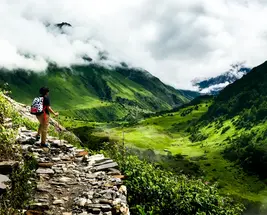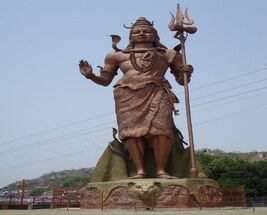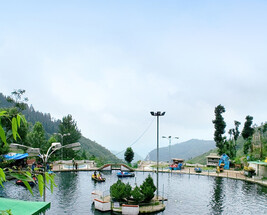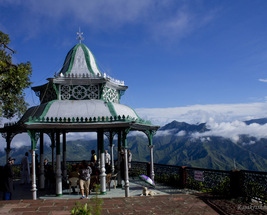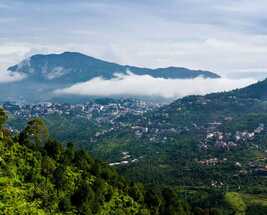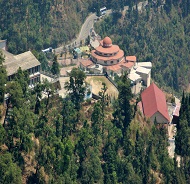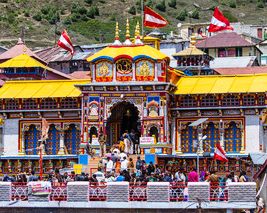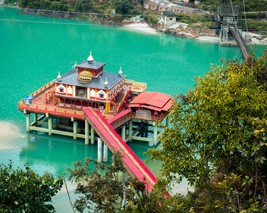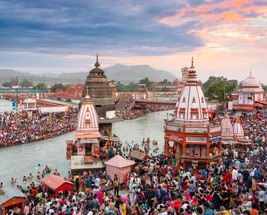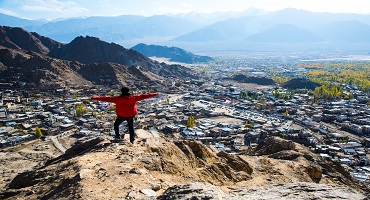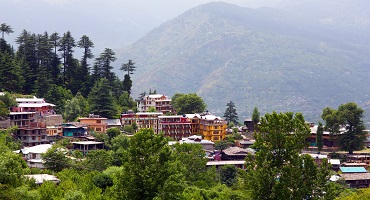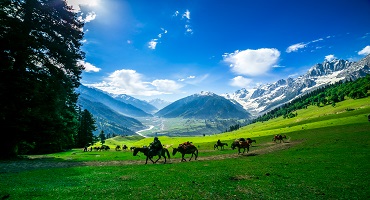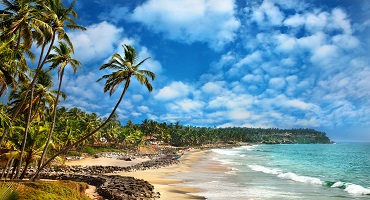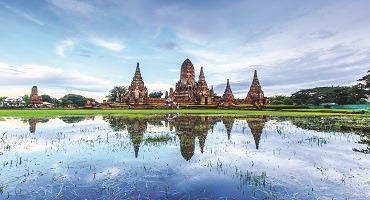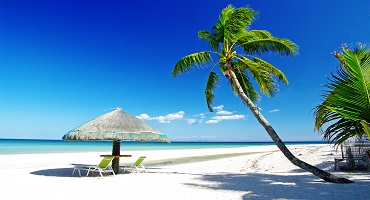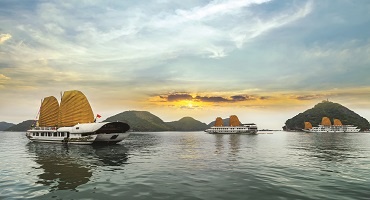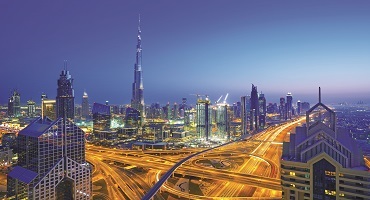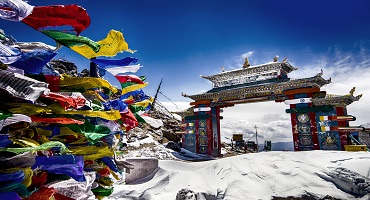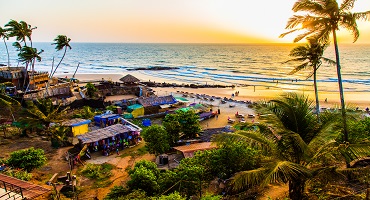Best time to visit Rishikesh
Rishikesh thrives off its intense spiritual energies and unparalleled natural beauty. Seated at the foothills of the Himalayan mountain ranges, this holy city is an oasis of tranquillity and serenity. One of the most renowned Hindu pilgrimage sites, Rishikesh marks the beginning of the Chota Char Dham Yatra. Deemed as a sanctuary for Yogis, this sacred abode attracts millions of visitors who seek enlightenment of the mind, body and soul. But there is another side to Rishikesh and this one spells fun, thrills and excitement. Rishikesh is also a playground for all kinds of adventure sports and cultural sites! Is it any wonder that travellers are drawn to its doors, through the year?
When it comes to the best time to visit Rishikesh, one must identify what they’re looking for in a holiday. Is the visit recreational, spiritual or for the pure love of nature? It’s also important to consider the varying levels of tolerance towards the cold and the heat. Ultimately, it’s necessary to consider Rishikesh’s pronounced seasons of winter, summer and monsoon. While winter paints the landscapes with frost, summer sets the surroundings ablaze and monsoon drenches the plains with beauty. Each distinct period makes its presence felt, leaving behind something profound in its wake. Rishikesh Tourism is indeed spectacular and is a must visit places
Thomas Cook has collated all the information you need to select the appropriate season to visit. And the best part is, it is all organised into one concise piece! Now, you don’t need to keep brooding, contemplating and researching. Your wait is over.
Read further, for a breakup of each season!
Peak Season – March to May
Shoulder Season – October to February
Low Season – June to September
|
Travel Seasons
|
Min/Max Temperature
|
Season
|
|
October to February
|
8 to 34°C
|
Winter - Chilly
|
|
March to May
|
14 to 39°C
|
Summer - Hot and humid
|
|
June to September
|
24 to 35°C
|
Monsoon - High Rainfall
|
Rishikesh in Winter (October to February)
Temperature: The air temperature during winter fluctuates between 8°C and 34°C.
Weather: Winter is regarded as the best climate to visit Rishikesh in. The atmosphere exudes crisp and fresh air, a delicious treat for the lungs. The climate sings with a beautiful chill, the perfect setting to achieving wanderlust. The weather is ideal for exploration and discovery when properly clad.
Significance: Rishikesh in winter is spellbinding. Not only will you have the opportunity to bask in the natural beauty of mountains, valleys, lakes, rivers and waterfalls, you can also engage in a multitude of thrilling sports such as river rafting, bungee jumping, para sailing, para gliding, trekking and camping. And the best part is, you have the backdrop of snow studded ranges to watch over you. Get in touch with the religious side of yourself by visiting one of the many temples dedicated to Lord Shiva or the spiritual side of yourself by visiting the numerous yoga institutions. The choices are infinite.
Why you should visit now: Winter can satisfy every one of the soul’s yearnings. From religious to spiritual, cultural to historical, recreational to adventurous, there’s a little something for each need and want. What better time to take long strolls, ascend steep inclines and meander through exquisite sceneries, than winter? What better time to discover India’s unwavering faith and intrinsic beliefs, than in winter? What better time to sip on hot tea and snacks, than this frost-tastic season? There are really some amazing places to visit in Rishikesh, so make sure to check it out
Things to know before the visit: Winter is the second most populous season in terms of tourism. As such, travel and accommodation will incline towards the steeper side. Make sure you plan your trip to Rishikesh well in advance. You might also want to leave sufficient room in your suitcase to optimize on winter shopping!
Tips: Make sure you pack warm clothing, including woollens and winter jackets. It’s imperative to have the right kind of footwear, especially if you’re hiking or trekking. Ensure that you always have a windcheater and torch handy. Other necessities include mosquito repellent, lip balm, moisturizer and basic medicines.
Rishikesh in Summer (March to May)
Temperature: The air temperature during summer fluctuates between 14°C and 39°C.
Weather: The weather of Rishikesh in summer can be described as hot and humid, interspersed with bursts of scorching heat. Due to its geographic location, the city’s summers can get particularly draining and exhausting. Warm winds and moisture in the air can be a rather sticky affair.
Significance: Moving beyond spirituality and the excitement of adrenaline-pumping adventure sports, Rishikesh summers have so much more to offer travellers! There are ways to beat the heat while simultaneously having enriching experiences. From the best ayurvedic treatments and spa sessions to the quirkiest and coolest cafes, iconic cultural spots and festivals, you can choose from a vast number of offerings. The International Yoga Festival occurs during this time, and trust us; it’s worth participating in.
Why you should visit now: Not only is Rishikesh the Yoga capital of the world, it is one of the most sacred Hindu pilgrimage destinations too! Summer evenings can be devoted to exploring the numerous temples, jhulas and auspicious sites. Perhaps one of the best spiritual experiences include partaking in the Ganga Arti that occurs at 5 pm each day. Especially for those who dislike the chill, summer is the most ideal time to learn about the city’s religious roots.
Things to know before the visit: While early summers are perfect for camping and adventure sports, late summers may not be the most conducive climate for such activities. In spite of that, this period marks the most populated tourist season. As such, travel and accommodation will be significantly steeper. June is the hottest month of the year, positioned at the confluence of summer and monsoon. Take this into consideration while planning your itineraries.
Tips: Pack light and airy clothing as summer can get particularly humid. Throw in a cardigan, which may come in handy at some point. SPF+30 Sunscreen is essential, as the altitude places you in direct contact with the sun. Stay hydrated through the day, with a 1-litre water bottle as your best companion. Lastly, make sure you eat well and get a sufficient night’s rest.
Rishikesh in Monsoon (June to September)
Temperature: The air temperature during the season of monsoon fluctuates between 24°C and 35°C.
Weather: With pleasant temperatures, monsoon enjoys the ‘climate status’ of being easy and breezy. The rain, wind, mist and fog create the ideal backdrop for peace and contemplation. However, there are risks of severe weather conditions in the form of landslides and floods. With that being said, this is the best season to visit Rishikesh in if you’re craving a new perspective.
Significance: Although this is a low tourist season, due to the obvious risks associated with the monsoon, there are still a number of experiences you can immerse yourself in. For instance, there are stunning and serene routes for you to explore. Rishikesh-Haridwar via Chilla Road and Haridwar-Kotswar via Lal Dangh Road, are both gorgeous drives to take during the monsoon. Furthermore, there are delightful accommodations such as Jungle Cottages that are magnificent during the rains. Most yoga institutions are shut during this time, but there are teachers training courses available. You can even take cooking classes from Cooking Masala and dabble with delicious North Indian cuisine.
Why you should visit now: Rishikesh transforms during the season of monsoon, much like other hamlets at the foothills of the Himalayan ranges. Drops of jewelled rain combined with wisps of mist create an atmosphere of magic. Violet clouds descend mountain tops, cloaking the atmosphere with mystique and wonder. Waterfalls, streams and springs come to life. Greenery is rejuvenated. Wouldn’t you love to experience this for yourself?
Things to know before the visit: Due to heavy rainfall and high tides, one cannot engage in adventure sports such as river rafting, parasailing, paragliding, bungee jumping and trekking. In-fact, these sports are inaccessible during the monsoon. And, for a good reason too! Take note of the fact that this period witnesses’ landslides, which could result in massive road blockages and loss of communication. Rainfall is the highest in August, which means that tourists will keep away and accommodation will therefore be less expensive.
Tips: Be prepared for unrelenting showers and strong winds. As such, you would need to carry an umbrella, windcheater, and waterproof bag. Make sure your shoes are sturdy and your clothes are light. Keep your electronics gadgets safe. Lastly, avoid embarking on treks and trails of your own as this could be extremely dangerous.
Ready to embrace your inner Yogi? Sift through our Rishikesh tour packages and start planning that much-anticipated vacation! You can also check out more ways on How to reach Rishikesh





